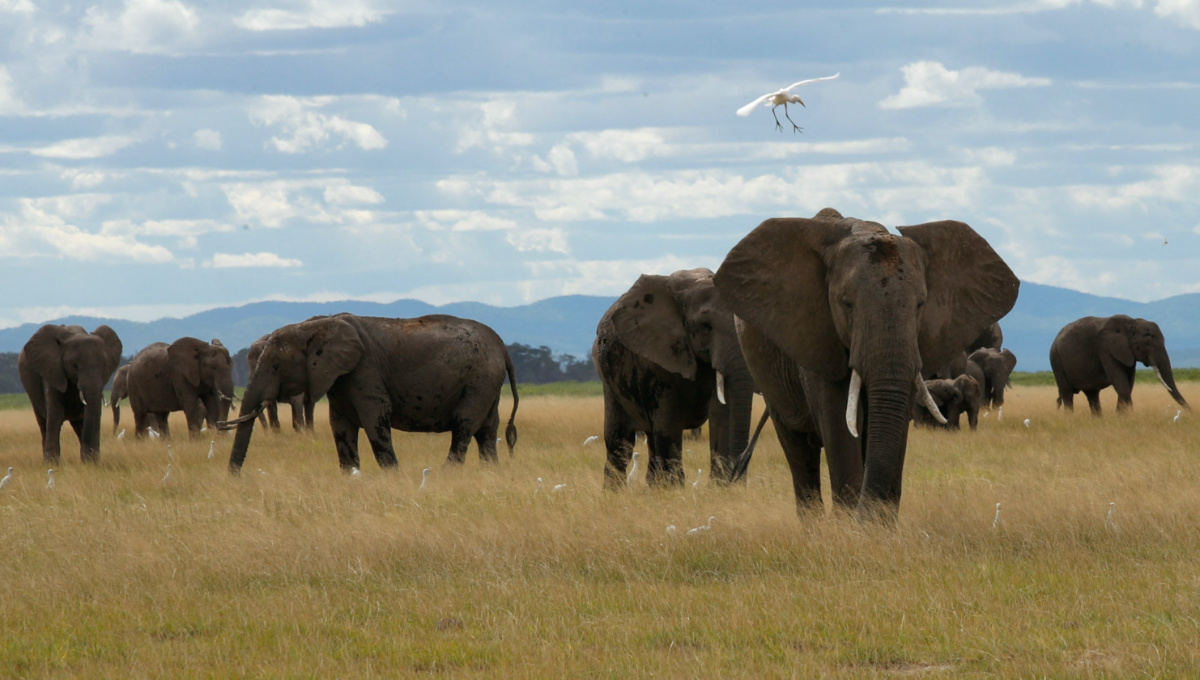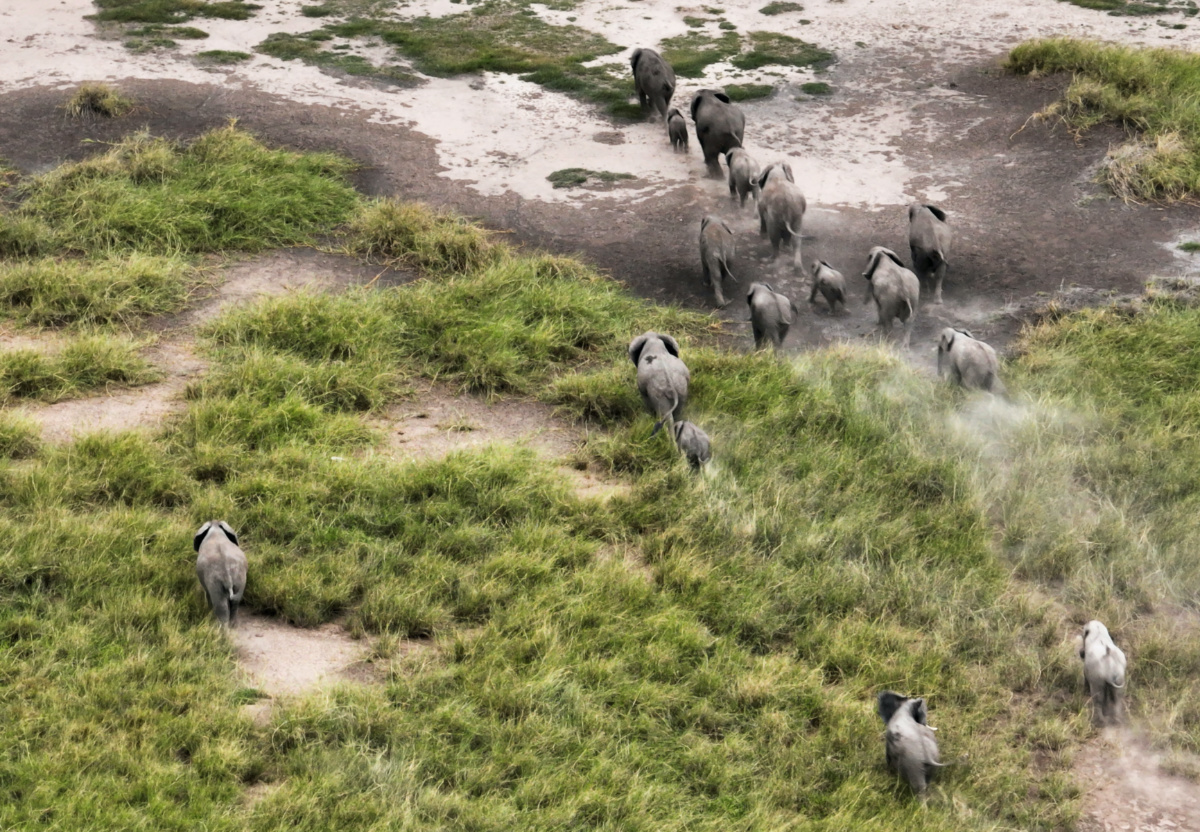Amboseli, Kenya
Reuters
In the rolling grasslands of the Amboseli wildlife park, conservationists fret about an emerging threat to Kenyan elephants that are crucial to its tourism business: licensed hunters across the border in Tanzania.
The two East African neighbours manage elephant herds differently. Tanzania issues some trophy hunting licences to wealthy sport hunters every year, while Kenya gets all its revenue from wildlife safaris.

A bird flies over elephants as it walks at the Amboseli National Park in Kajiado County, Kenya, on 4th April, 2024. PICTURE: Reuters/Monicah Mwangi
Tanzania’s way of supervising elephant herds is aligned with many southern African nations like Zimbabwe, Namibia, Botswana and South Africa, while Kenya’s zero tolerance of wildlife hunting or sale of ivory mirrors that of Gabon.
Conservationists and Kenyan officials, however, are now urging Tanzania to restrict trophy hunters to its heartland, to protect Kenyan elephants, after three of them were shot across the border in recent months.
“It is not right to license trophy hunting near the border with Kenya,” said Joseph Ole Lenku, the Governor of Kenya’s Kajiado county, which relies on tourism.
Tanzania’s wildlife regulator, and its government, did not comment.
Last September, a Kenyan elephant with tusks that weighed 50 kilograms each was shot by licensed hunters some 23 kilometres inside the border with Tanzania, conservationists said.
The killing broke an unofficial moratorium on hunting elephants near the Kenyan border. The ban was agreed in 1995 after an outcry over the shooting of four Kenyan elephants on the Tanzanian side in 1994, conservationists said, although the prohibition did not set out detailed regulations.
After the first Kenyan elephant was gunned down in September in the Enduimet Wildlife Management Area, two more have been shot, all belonging to a group known as “super-tuskers” due to their large tusks, the wildlife campaigners said.
“The Amboseli bloodline of tuskers is probably one of the best in the world, so from a genetics perspective it is really important,” said Richard Bonham, co-founder and executive chairman of Big Life Foundation in Kenya, a conservation group.

A drone view shows elephants walking in the Amboseli National Park, in Amboseli, Kenya, on 4th April, 2024. PICTURE: Reuters/Christophe van der Perre
Visitors from around the world flock to Amboseli every year to see the huge elephants, he said, making them valuable from a tourism perspective.
Tourism is one of the top foreign exchange earners for Kenya and the sector employs millions of people directly and indirectly.
We rely on our readers to fund Sight's work - become a financial supporter today!
For more information, head to our Subscriber's page.
The conservationists say they now want Tanzania to reinstate the trophy hunting moratorium, reinforcing it with more definite terms on land within 40 kilometres of the Kenyan frontier.
Tanzania charges a fee of $US10,000-$US20,000 for a licence to hunt an elephant trophy, which is split between the government and the community if the trophy is hunted in conservation areas run by local groups.
Conservationists said they were not calling for a hunting ban in all of Tanzania, but for protection of precious Kenyan tuskers that wander back and forth across the border.
“The problem is that the hunted elephants were among the very few elephants with such large ivory,” they said.
– Additional reporting by CHRISTOPHE VAN DER PERRE






